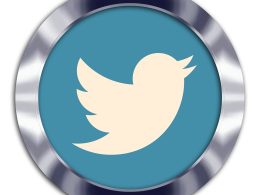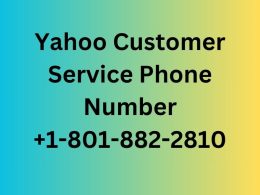Are you tired of buffering videos and slow downloads? Frustrated with your internet provider’s promises of lightning-fast speeds that never seem to materialize? Well, worry no more! In this blog post, we’ll share some practical tips on how to get the speed you need from your internet provider. From optimizing your Wi-Fi network to upgrading your equipment, we’ve got you covered. So buckle up and get ready for a smoother online experience!
The Different Types of Internet Service Providers
There are four primary types of Internet service providers (ISPs): cable, fiber, satellite, and DSL.
Cable is one of the most popular types of home Internet service because it’s widely available and typically affordable. Cable Internet works by using the same coaxial cable network as your TV service to connect you to the World Wide Web.
Fiber internet is the fastest type of broadband connection with average speeds of 1,000 Mbps–10 times faster than typical cable internet plans. But it’s also currently only available in about 25% of U.S. zip codes.
Satellite is a great option for rural homeowners who don’t have access to other types of high-speed Internet service. Satellite Internet involves beaming an Internet signal from a satellite in space directly to a small dish on your property.
DSL (digital subscriber line) is a type of high-speed Internet that uses copper phone lines instead of cables or fiber optics. It’s widely available throughout the United States but typically doesn’t offer speeds as fast as cable or fiber optic connections.
What is the Speed You Need?
There are a lot of factors that go into the speed you need from your internet provider. The first is what kind of internet user you are. Are you someone who just uses the internet for basic tasks like browsing the web and checking email, or do you use the internet for more data-intensive tasks like streaming video or gaming? The second factor is how many people are using your connection at the same time. If you live in a household with multiple people using the internet at the same time, you’ll need a faster connection to avoid slowdown.
The last factor is what type of connection you have. If you have a cable or DSL connection, your speeds will be slower than if you have a fiber optic connection. Fiber optic connections are the fastest type of residential internet currently available, so if speed is a priority for you, that’s something to keep in mind when choosing an internet provider.
Keep these factors in mind when considering what speed you need from your internet provider. If you’re not sure, err on the side of getting a faster connection than you think you need – it’s always better to have more speed than not enough!
How to Get the Speed You Need From Your Internet Provider
Most people don’t realize that the speed of their internet is not solely determined by their internet service provider (ISP). In fact, there are a number of factors that can affect your internet speed, including the type of connection you have, the quality of your equipment, and even the time of day.
That said, there are some things you can do to ensure that you’re getting the best possible speeds from your ISP. Here are a few tips:
1. Check your equipment. Make sure that you have a good modem and router. If you’re not sure, ask your ISP for recommendations.
2. Connect directly to your modem. If you’re using a wireless router, try connecting directly to your modem with an Ethernet cable. This will eliminate any potential interference from other devices on your network.
3. Test your speed at different times of day. Internet speeds can vary depending on the time of day and the amount of traffic on the network. Try testing at different times to see if there’s a difference in speed.
4. Contact your ISP if you’re still not satisfied with your speeds. They may be able to help you troubleshoot the issue or provide you with a higher-speed package
How to Improve Your Internet Connection
If you’re like most people, you probably rely on your internet connection for a lot of things. You might use it for work, school, or just to stay connected with friends and family. And if you’re not getting the speed you need from your internet provider, it can be frustrating.
There are a few things you can do to try to improve your internet connection. First, make sure you have the latest version of your web browser. If you’re using an outdated browser, it could be slowing down your connection.
Second, clear your browser’s cache. Over time, your browser can collect a lot of junk data that can slow down your connection. Clearing the cache will help get rid of this junk data and potentially improve your speeds.
Third, close any unused tabs or programs. Having too many tabs or programs open can also slow down your connection. So if you’re not using something, close it to help improve your speed.
Finally, restart your router. Like any other piece of technology, routers can sometimes need a reboot to work their best. Turning it off and then back on again can often help improve speeds.
Try these tips next time you’re feeling frustrated with your internet connection speeds. Hopefully they’ll help give you the boost you need!












